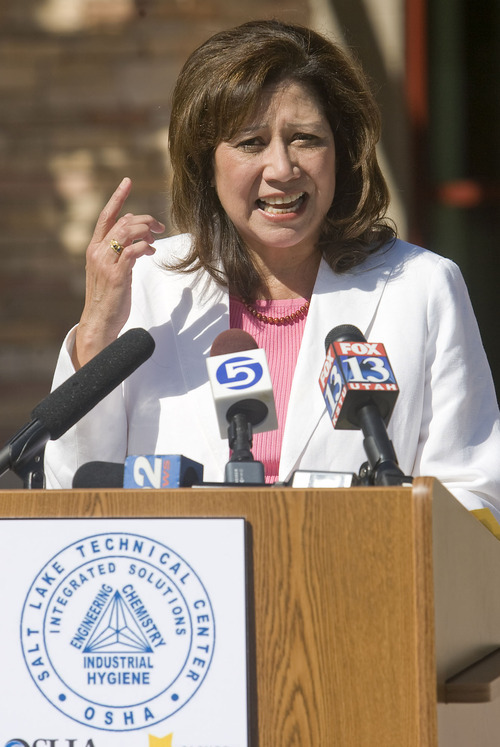This is an archived article that was published on sltrib.com in 2011, and information in the article may be outdated. It is provided only for personal research purposes and may not be reprinted.
The Labor Department is signing agreements to share information with Utah and eight other states and the Internal Revenue Service as it gets more aggressive in its program to crack down on businesses that cheat workers out of their hard-earned wages.
The information will help Labor officials target businesses that improperly label workers as independent contractors or as non-employees to deprive workers of minimum wage and overtime pay. Misclassifying workers also lets companies avoid paying workers compensation, unemployment insurance and federal taxes.
Patricia Smith, the Labor Department's top lawyer, said sharing information between state and federal agencies could subject businesses to multiple fines.
"There's more of an incentive to be in compliance because the cost of what we consider to be illegal activity has increased," Smith said.
In the past, a company might pay a single fine to a state agency for not making proper unemployment insurance payments. Under the new agreements, a state can share the information with the Labor Department, which can seek fines and penalties for federal wage violations, too.
The violation would also be reported to the IRS, which can go after the company for unpaid taxes, Smith said.
States that have agreed to work with the Labor Department are Connecticut, Hawaii, Maryland, Massachusetts, Minnesota, Missouri, Montana, Utah and Washington. New York plans to sign up.
Labor Secretary Hilda Solis has made increased enforcement of federal wage-and-hour laws a top priority since she took office in 2009. The department has focused on industries where so-called wage theft is considered a problem, including hotel, restaurant, janitorial, health care and day care.
Last month, the agency began targeting large U.S. homebuilders to see if they failed to pay workers the minimum wage or overtime.
Earlier this year, the department recovered more than $219,000 in back wages for 44 Boston-area restaurant workers who were misclassified as independent contractors by two restaurants. The restaurants had failed to pay them overtime and also weren't paying their payroll taxes.
Scott DeFife, a vice president for policy and government affairs at the National Restaurant Association, said his group works closely with members to navigate the "increasingly complex" federal and state rules governing wage and hour issues.
In 2010, the Labor Department collected $4 million in back wages on behalf of 6,500 employees who had been misclassified, a 400 percent increase over the amount collected in 2008. The department has hired 300 additional investigators to probe wage theft complaints.



